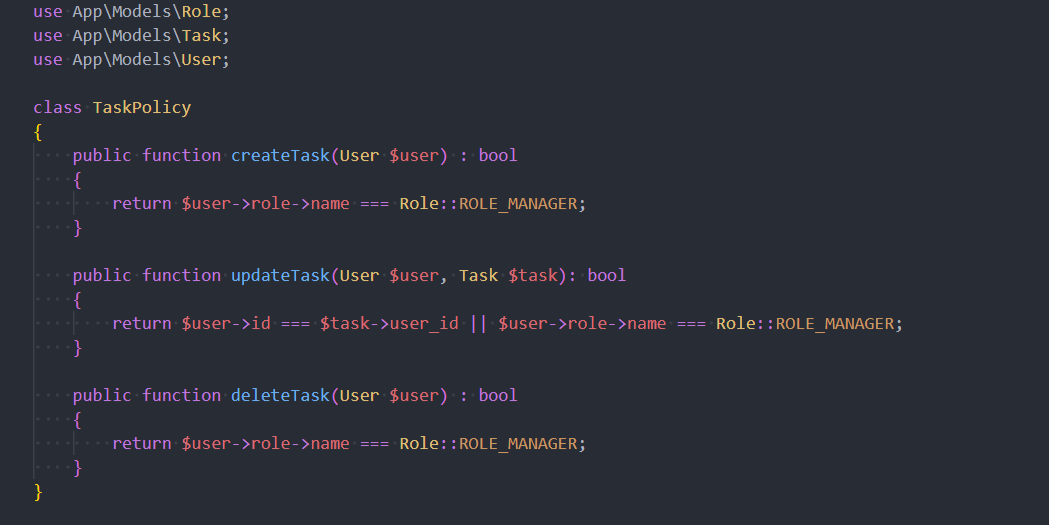In a project, I implemented middleware, policies, and gates to fortify security and foster flexibility.
The use of constants inside the Model for defining roles ensured the system's reliability and adaptability, eliminating potential production bugs stemming from server discrepancies or future changes.
An intricately crafted middleware was employed to safeguard the app's routes, allowing only authorized access.
class ManagerAccess
{
public function handle(Request $request, Closure $next): Response
{
if ($request->user()->role->name !== Role::ROLE_MANAGER) {
return back()->with([
'message' => 'You do not have the necessary authorization.'
], 401);
}
return $next($request);
}
}
Furthermore, reinforcing security entailed the addition of extra gate permissions in Form Request classes
class StoreTaskRequest extends FormRequest
{
public function authorize(): bool
{
return Gate::allows('createTask');
}
public function rules(): array
{
return [
'name' => ['required', 'max:255'],
'description' => ['required'],
'priority' => ['required']
];
}
}
And the establishment of a super admin within the AppServiceProvider file.
Gate::before(function (User $user) {
if ($user->role->name === Role::ROLE_ADMIN) {
return true;
}
return null;
});
The utilization of policies and traits streamlined responses, imparting greater reliability and readability to the codebase.
This comprehensive strategy markedly bolstered the security and maintainability of the Laravel project.
